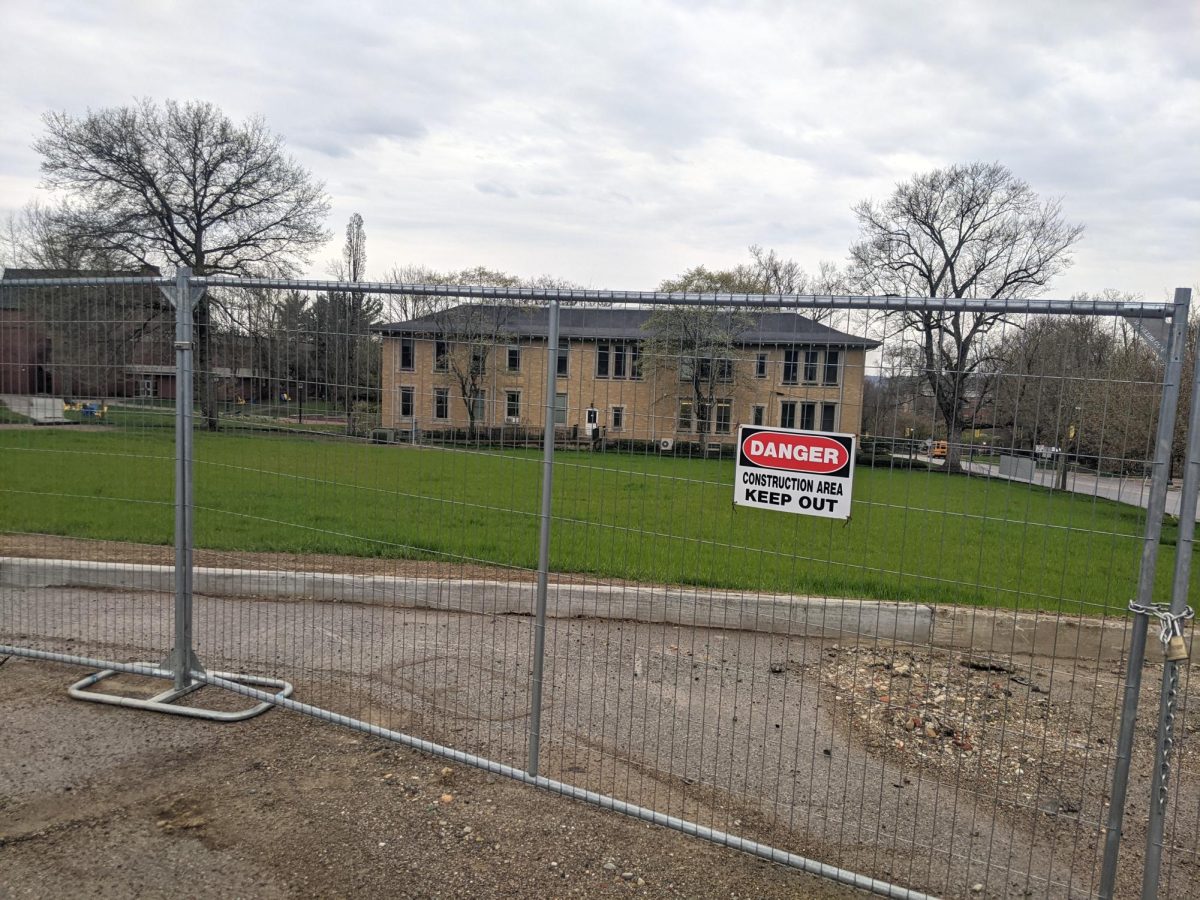Representatives from Students for Environmental Action will attend a protest called Forward on Climate Rally this weekend in Washington, D.C.
SEA President Kiley Fisher, ’13, said between 35 to 40 students are expected to travel from Allegheny to D.C., some in a bus SEA rented from ASG and others in cars.
Students will bring signs and banners with them, which they will make at Thursday’s weekly SEA meeting. Most of the students will leave Friday, but some students who have prior commitments will be leaving on Saturday. The students will stay with friends and family in the area.
The rally will start on President’s Day, Sun., Feb. 17, at 12 p.m. The main focus of the rally will be the proposed Keystone XL pipeline, an extension to an existing pipeline used to transport crude oil extracted from tar sands in the Athabasca region of Alberta, Canada, to various locations in the U.S., including refineries and market destinations.
It will also address related environmental issues such as divestment from fossil fuels in general and push for the research and development of alternative energy sources.
Protesters will begin at the National Mall and proceed to the White House chanting slogans and waving signs. President of 350.org Bill McKibben, who visited Allegheny last year to lead a grassroots activism workshop, will give a speech along with other environmental activists. At Allegheny, McKibben shared his experience with students and community members to help plan their protest against the proposed tires-to-energy plant.
The rally is being organized by the environmental organizations 350.org, Sierra Club, and the Hip-Hop Caucus. Thousands of people are expected to attend.
SEA is also currently in contact with environmental organizations at other schools across the state, each of which is also expected to send 35 to 40 students.
Members of SEA attended two previous rallies organized by 350.org in Washington, D.C. about the K-XL pipeline. Almost 3,000 people attended the last rally, held two weeks after Obama’s re-election on Nov. 18.
Tiffany Ng, ‘14, attended the two previous protests and believes this one is particularly important.
“This protest is especially significant because of timing,” she said. “Obama is starting his second term and it’s important that he sets the stage of committing…to stopping climate change.”
Fisher said she hopes SEA can bring home some of the protest’s high energy, to motivate Allegheny students’ interest in environmental energy.
“For students, this kind of protest is usually very empowering,” she said. “At Allegheny, progress in environmental fights tends to be slow and hard to see, whereas being with other students who care about similar things, also members of the community, working adults, human beings, it’s great to see that there are others who care about the same things as us.”
Vice President of SEA Brian Anderson, ’13, said that protests like this one unite passionate students.
“People can be very focused on specific issues…and I think those kind of processes can be exhausting…because Allegheny is an institution, a bureaucracy,” he said. “Whereas, this is an event where you can connect to other people..who are interested in these topics…environmental problems don’t just exist at Allegheny College, they exist all over the country…so having those wider connections is essential to the environmental movement.”
Fisher agreed that the unifying aspect of the protest is important. She said that it’s vital for students at Allegheny to see that there are others who are just as passionate about this issue.
“Whether or not this rally is so important it makes Obama make his decision doesn’t matter as much in terms of Allegheny..as it will make students see that they’re not alone,” Fisher said.
Zach Cramer, ’15, attended the November protest and, while there, learned about the President’s Day protest.
“[Anderson] and I were like, we have to do this,” he said. “I think it’s really important to take a stake in your country, make sure your voice is heard, because often times, a lot of the policies that are being enacted right now don’t really have the people in mind.”
The Keystone XL pipeline is a proposed extension to the existing Keystone Pipeline System. This system transports crude oil extracted from tar sands in the Athabasca region of Alberta, Canada, to various locations in the United States, including refineries and market destinations.
TransCanada Corporation, sole owner of the Keystone XL, conceived of the pipeline in 2007 and completed construction of it in 2010.
The proposed extension consists of two phases. The first would start in Cushing, Okla., where American oil would be introduced in the pipeline, and transported to terminals and marketplaces in Texas.
The second phase would also start in Alberta and cross over into the United States in Montana. From there, it would stretch through South Dakota and Nebraska, where it would connect with the existing Keystone Pipeline System in Steele City, Nebr.
Because the pipeline crosses international and state boundaries, TransCanada must apply for permits from state and federal governments. Environmental groups have been pressuring President Obama and the federal government to withhold these permits and stop the construction of the K-XL pipeline.
Anderson explained the environmentalist’s concerns. A break in the pipeline could cause a major oil spill that could cause environmental damage.
In July 2011, a break in a similar Exxon Mobil pipeline in Montana caused 1,500 barrels of oil to spill into the Yellowstone River. The oil fouled 70 miles of the river. ExxonMobil spent $135 million in a months-long effort to clean up the river.
According to the South Dakota Department of Environment and Natural Resources, there have already been two spills associated with the existing Keystone Pipeline. Another major concern is that this extension will increase the United State’s reliance on oil extracted from tar sands, which is considered one of the dirtier sources of transportation fuel available.
According to a 2010 study review by the National Resources Defence Council, and environmental action group, crude oil produced from tar sands has 8 to 37 percent more emissions than the average for oils produced domestically in the U.S.










